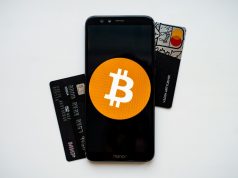What can Pegasus spyware do?
The Israeli business NSO Group’s Pegasus attack is practically undetectable. It delivers messages to a specific cell phone without raising any red flags for the phone’s owner. As a result, experts warn there is very little that you could do to secure yourself.
The spyware attack took the consortium to a record of much more about 50,000 contact information of activists, reporters, corporate leaders, and officials – probable iPhone & Android users of the Pegasus spyware, according to a report through The Washington Times and 16 affiliated companies.
Who owns Pegasus spyware?
It is situated in Herzliya, Israel, near Tel Aviv, and has employed around 500 employees since about 2017. The Q Cyber Technology group of enterprises owns the NSO Organization.
How do I know if my phone is under surveillance?
While the disclosure of further than 50,000 reportedly tracked telephone numbers appears to be a large amount, it is improbable that the Pegasus malware was used to track everyone who’s not publicly visible or active in politics.
Spyware’s essential nature is to stay secret and unnoticed on a machine. However, there are measures in place to detect if your computer has been hacked.
The Amnesty International Mobile Authentication Toolkit is a (relatively) simple method to find out (MVT). This utility can check the data and settings of your smartphone by evaluating a backup obtained from the smartphone and can operate within the device.
While the study cannot establish or refute if a computer is affected, it can find “predictors of compromise” that lead to virus evidence.
How does it work?
The process by which the Pegasus malware infects users’ phones is not very hard. The first hack entails sending a specially prepared Text or iMessage with a hyperlink to a webpage. If you click on this link, you will get dangerous malware that infects your computer.
The goal is to get total power of the OS of the smartphone, either through tapping (on Android phones) or decompiling (on iOS)
Barracking an Android smartphone is typically done in such a manner as to download applications via a non-supported application store or even to re-enable a feature that the developer has removed.
On Apple products, a hack can be used to install programs that are not accessible on the Android Market or open up the phone to be used on different mobile networks. Most jailbreak methods include connecting the smartphone to a laptop every time it is switched on (known as a “tethered hack”).
Rooting or jailbreaking can get rid of the security features built into iPhone and android. They usually consist of configuration modifications and a “hacking” of basic operating systems features to run customized programs.
When a device has been unlocked, the offender can install additional software to get a remote connection to the phone’s data and functionality. But, again, this individual is more likely to be entirely uninformed of the situation.
The malware attacks Android phones, although it is not as successful because it depends on an unreliable rooting approach. So when the primary infection plan fails, the malware is said to request the victim to acquire appropriate rights to be efficiently disseminated.
How to protect yourself from spyware?
Although the majority of individuals are uncommon to be attacked by this sort of assault, there will still be easy measures that can be taken to reduce your risk of being harmed by Pegasus and other harmful attacks.
- While using your smartphone, only click links via known and trustworthy acquaintances and websites. Pegasus is distributed via an SMS link on iOS devices. And so many fraudsters use the similar approach for both virus dissemination and less sophisticated schemes. The same precautions apply to URLs received by mail or other chat apps.
- Ensure that all required fixes and upgrades are installed on your device. Although having a formalized and structured system provides a steady platform for hackers to attack, it still is the most outstanding defense.
If you are using Android, don’t rely on alerts for new system updates. Instead, because your phone’s distributor may not have been delivering updates, you should search for the most recent version yourself.
- While it may seem self-evident, you should keep physical access to the device to a minimum. Enable pin, fingerprint, or facial unlocking on the phone to accomplish this.
- When viewing sensitive material, avoid using open or accessible WiFi connections (especially hotels). Whenever you need to utilize such networks, using VPN iOS or VPN such as VeePN for android is a fantastic alternative. There is nothing to worry about as long as you are using a reliable VPN service with some powerful encryption and well-secured servers. It is improbable that hackers will try to infect a VPN connection with malware and viruses in the first place since that is too much hassle for them. Hence the usage of VPN app apk and VPN for iOSis vital for the encryption of your device.
- Protect your phone’s data and, if accessible, use remote erase options. If your smartphone is stolen or lost, you can be assured that your material will be protected.








